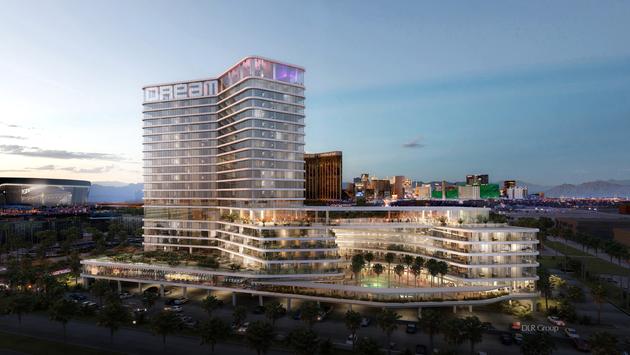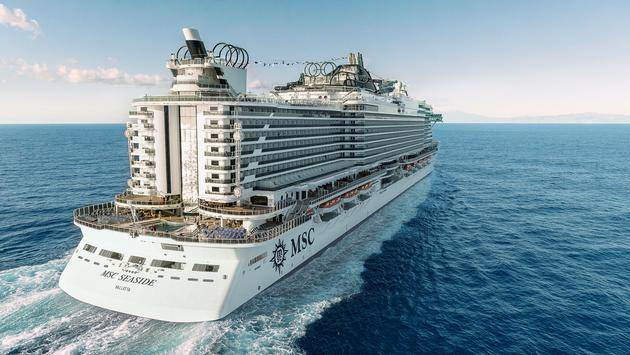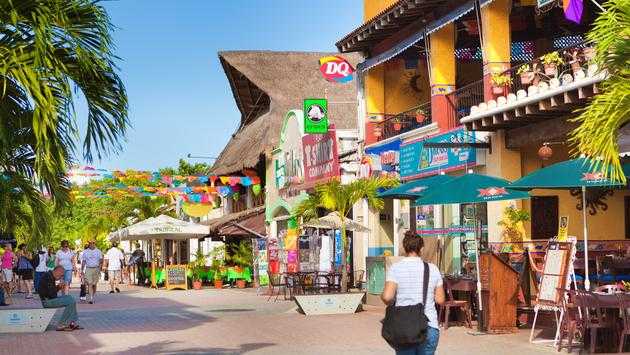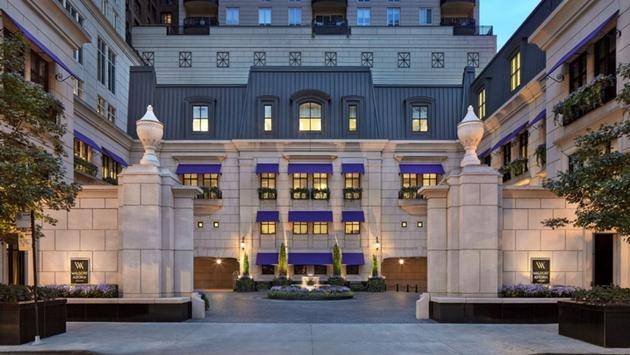Dream Hotel Group CEO Shares COVID-19's Impact on the Hotel Industry
The hotel industry has been hit hard this year. Jay Stein, CEO of Dream Hotel Group, shed some light on how the hotel industry has been impacted by the COVID-19 pandemic, the measures hotels are taking to make them safe for people to stay and when he believes the hotel industry will recover.

TravelPulse (TP): Why aren't hotels receiving the same relief packages as other industries, such as the airline industry?
Jay Stein (JS): Other industries like airlines, banking, automobile, etc. are typically made up of three to ten major players who own the planes, own the terminals, own the cars, own the assets, etc., so when the government helps those companies, they aren’t just helping one business, they are saving an entire industry. If they didn’t come in to help airlines, the entire industry would have gone under. Whereas in the hotel industry, there are about six big hotel companies (Marriott, Hilton, IHG, Hyatt, Accor and Wyndham) who own very few hotels. Most hotels are owned by thousands of different owners, not the brands themselves, so for the government to help them out when the industry got crushed was as easy as saving a few big companies. The big six companies were not crushed like the owners of the hotels were. Unfortunately, the government doesn’t always see past the big six, and it’s the smaller brands, the smaller ownership groups that are losing the most money who need the most help.
TP: How has Dream Hotel Group been impacted by the pandemic and what do you see as the future of the hotel industry in terms of long-term implications of how the industry has adapted during the pandemic, such as contactless check-in, etc.?
JS: Dream Hotel Group hotels were tremendously impacted by the virus, and we saw top- and bottom-line numbers drop more than we ever could have anticipated they ever would. We never ever could have imagined this would happen, but Dream Hotel Group, as well as the hospitality industry, is remarkably resilient. There’s no doubt the industry’s rebound will be a great challenge, but we are ready to make that happen, and we are optimistic about the future. In fact, I see the industry bouncing back in most markets fairly quickly (over the next year) as the pent-up demand is very real in the leisure market, and corporate will also start to rebound over the next 6-12 months. Some markets will take longer, like New York and San Francisco, and I believe they will evolve into an entirely different type of modern city finding unique uses for their overabundance of class A office space. Businesses are going to get creative and I’m curious to see how things change in the years ahead. It will be exciting, but very different for sure.
Meanwhile, today, we are still dealing with the pandemic, and while the needs of our guests, and travelers as a whole, have certainly changed, many have also stayed the same. At Dream Hotel Group, we added new safety protocols and procedures across all our hotels and restaurants, we reconfigured our food and beverage venues and how we do business to minimize risk while still offering a fun, safe place to stay and play. The safety and security of our guests and our associates remains top priority, and that will never change.
Similarly, the need for top-notch service and accommodations will never change, and the pandemic shouldn’t be an excuse to cut any of those standards. Business and leisure travelers today deserve the same comforts they’ve always had with a few new additions in response to COVID-19.
Audio-visual needs for virtual meetings will also stay strong, and all the technology solutions we’ve introduced and prioritized to make travel more convenient, more enjoyable and more contract-free in 2020 (i.e. contactless check-in, robots for guest services and in-room food delivery, QR codes and mobile apps for paperless menus, ordering, etc.) will remain just as important and a welcome change for travelers post-pandemic. At the end of the day, our goal is to make the travel experience more enjoyable for our guests, and these new technologies are part of that.
TP: How have smaller hotels and boutique chains been impacted by the pandemic differently than larger chains?
JS: All hotels have been impacted significantly. Some resort areas have fared better, but most markets have suffered regardless of the type of hotel you have. It’s more about the size that will determine the long-term impact. The large convention hotels with 40,000-50,000 square feet of meeting space and ballrooms will likely be the last to recover as large convention business will be the last to fully return. That’s not to say our boutique hotels weren’t impacted just as much as they were, because they were. But the larger convention hotels will take longer to bounce back.
TP: When do you see things getting "back to normal"? Do you see permanent or long-lasting changes to the industry or in how people will travel post-pandemic?
JS: I’m an optimist and a realist. I believe most markets will return close to normal over the next 18 months. I do not think we will see long-lasting changes to the industry.
The travel industry will bounce back. It may take a few years, but we will bounce back. Of course, a large part of our recovery is contingent on a vaccine rollout , which we are seeing now. Markets that were strong before will be in better shape. New York City was not in great shape and will likely continue to struggle for three to four years following the pandemic.
The rollout of three COVID-19 vaccines is now underway, and as more people get vaccinated, we expect travel to begin resuming. We are already starting to see a positive impact and anticipate we’ll see more over the next few months. Though the full impact may not be felt until next fall or even next winter, noticeable improvements will start to be felt by this summer or possibly even sooner.
All that said, we are still seeing a significant impact on our business. Four of our hotels in New York City remain closed due to very low demand and very high costs of operating in this market. We hope to have one or two NYC hotels reopened by May/June, but it’s been challenging. Outside of New York, all our hotels in the U.S. are open, and we are seeing some exciting signs that a turnaround is in progress with Dream South Beach, Dream Nashville, Dream Hollywood and Unscripted Durham numbers tracking up. We have also seen some significant improvements in many of our food and beverage venues in Nashville and Durham, and we are excited to finally see indoor dining, events, arts and entertainment return to the New York City properties too. New York City is resilient , and we will recover – bigger, bolder and brighter than ever before.
TP: Do you believe the government needs to have a role in the recovery of the hospitality industry?
JS: Yes! Without a doubt the government will play a major role in the recovery of the hospitality industry – and they are late!
For now, the most important thing is a successful vaccination rollout – getting it done and getting it done quickly, which is already happening. There’s a lot of work that can be done regarding real estate taxes in New York City as well, and I’m hopeful new administrations will make that a priority for our industry.
From there, we need employees, corporations and their legal teams to feel comfortable that the pandemic is behind us. A strong global economy will certainly help, and when the time is right, I expect group and meetings business to return with gusto. Zoom fatigue has set in, and people are ready and excited to meet again in person. Until then, companies will be sharpening their pencils and looking for returns on travel. Many businesses have been hurt by the pandemic, and I expect everyone will continue to look for cost-saving measures as we begin the road to recovery.













